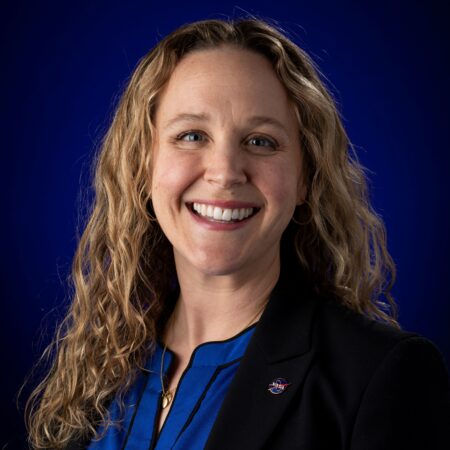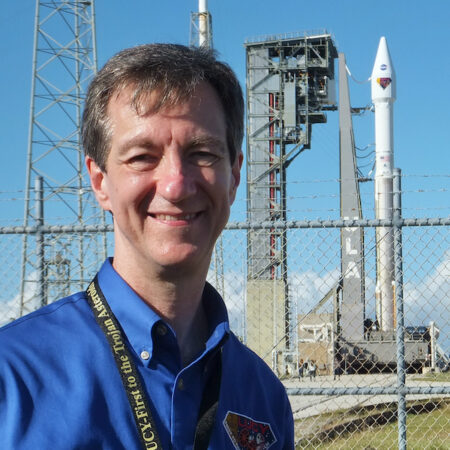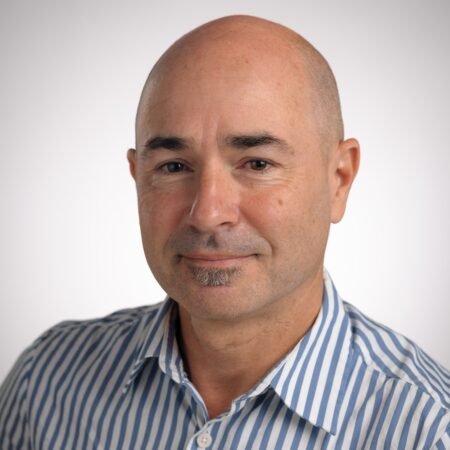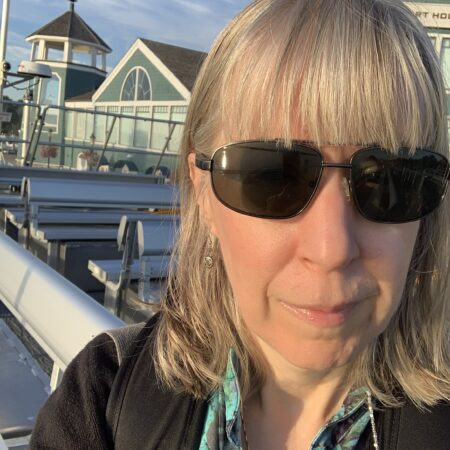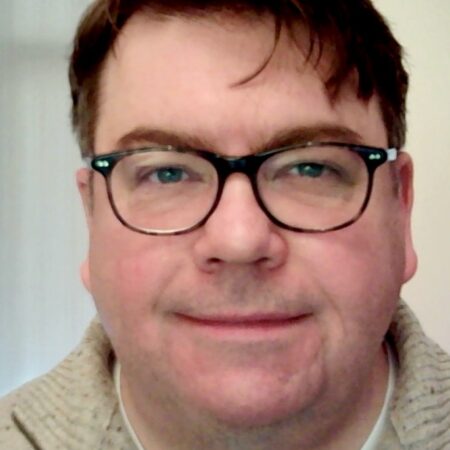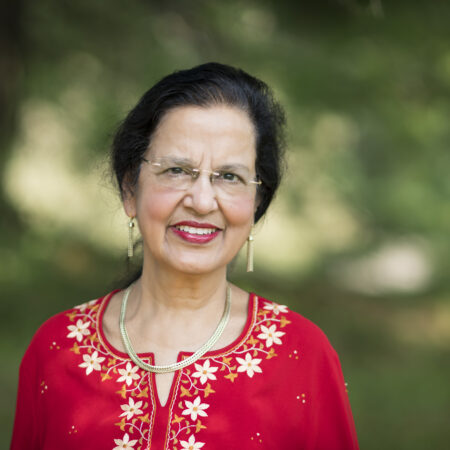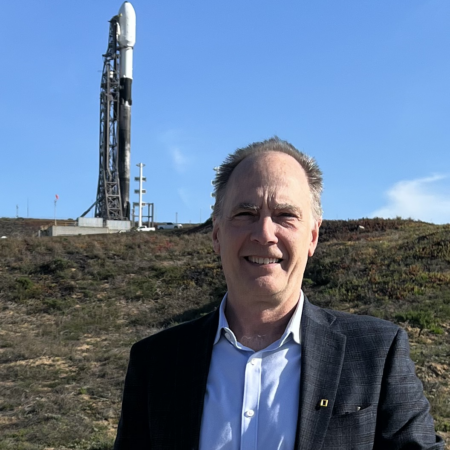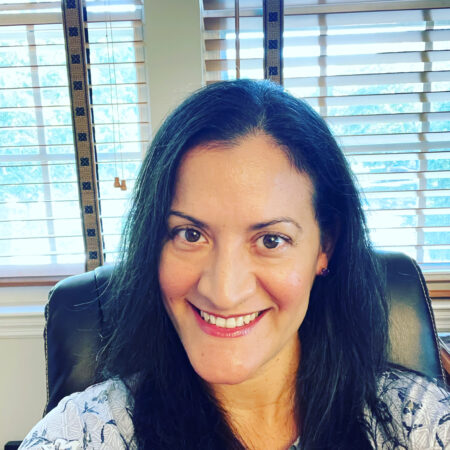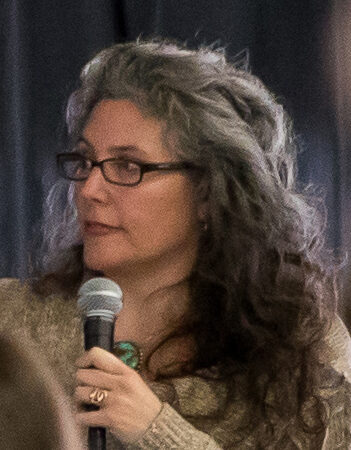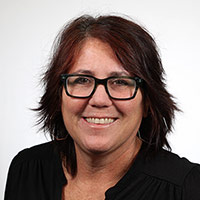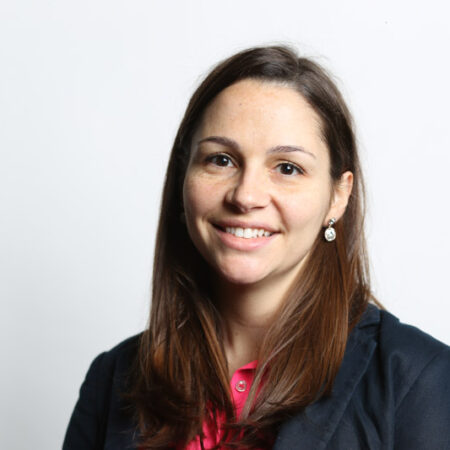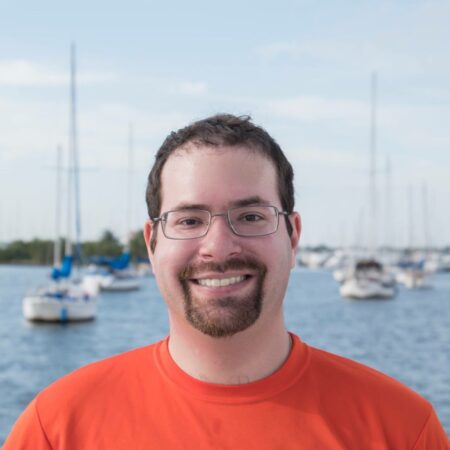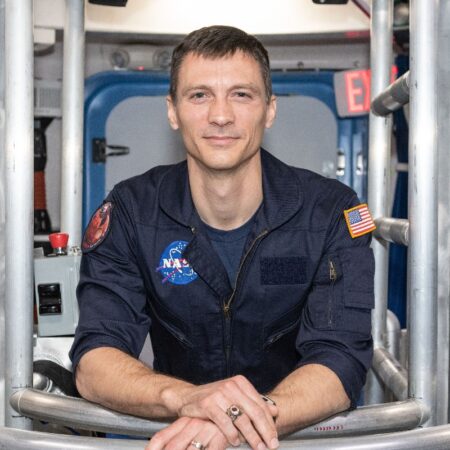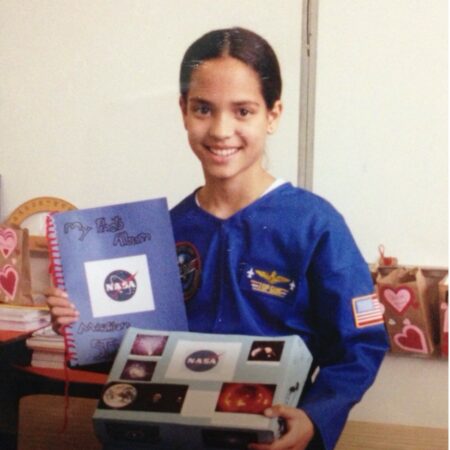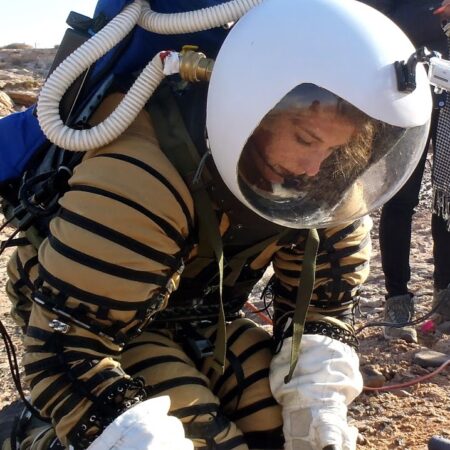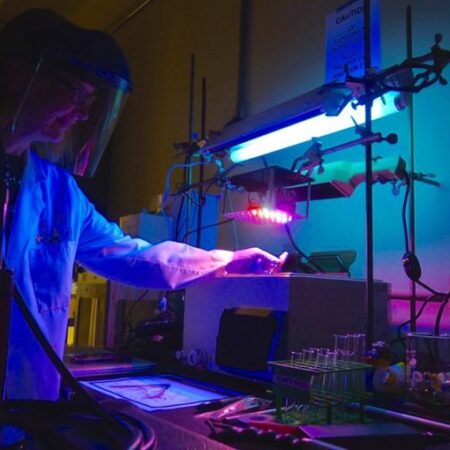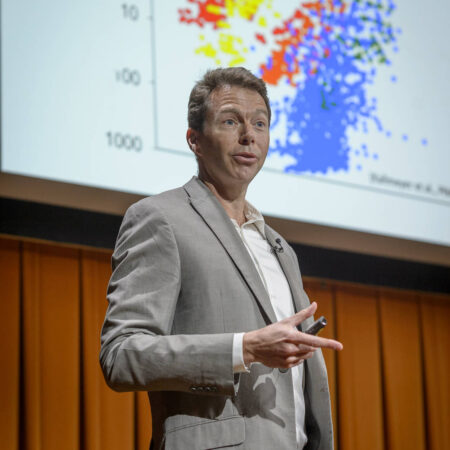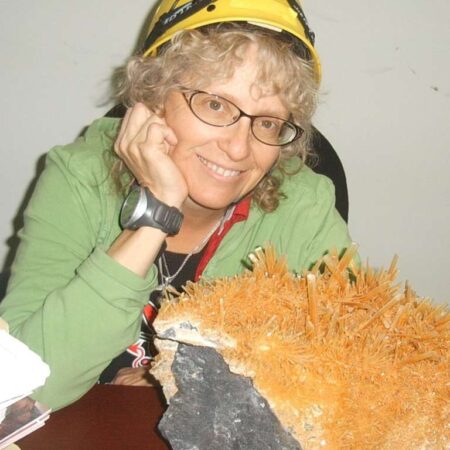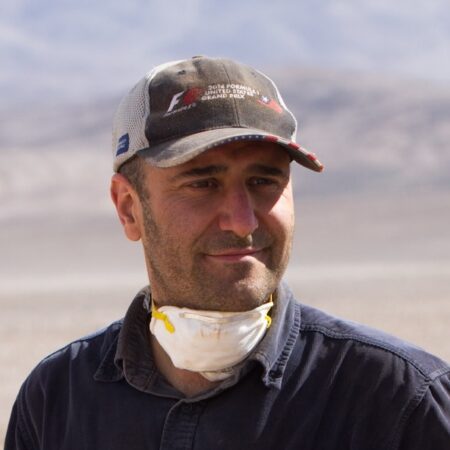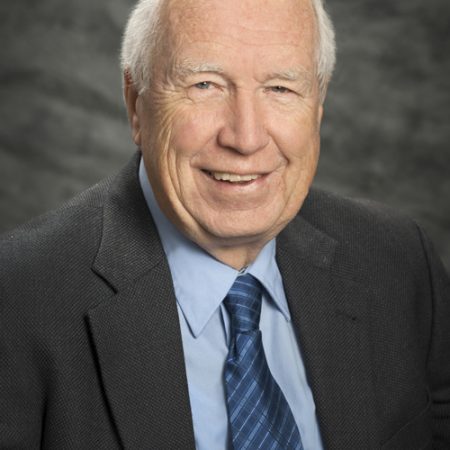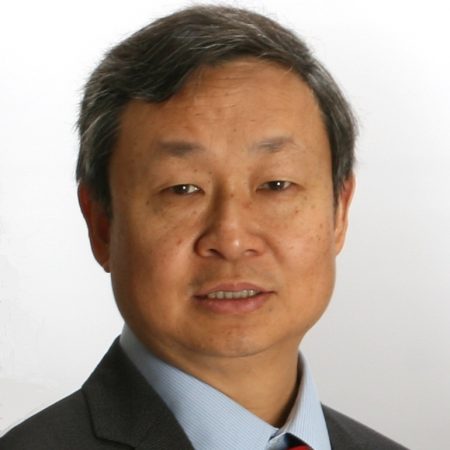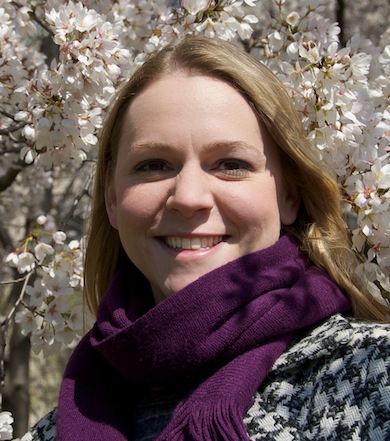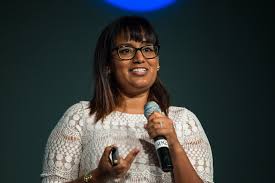Refine
Date Range Clear
Recorded by Clear
Keywords Clear
- exoplanets 219
- #AGU 219
- astrobiology 219
- #AGU100 218
- discovery 70
- NASA 68
- #womeninscience 41
- 503 more
Partnerships Clear
- No matching terms.
Organizations Clear
- American Geophysical Union 67
- NASA 21
- National Aeronautics and Space Administration 9
- BAERI 5
- NASA Ames 5
- 17 more
Places Clear
- AGU 2018 Fall Meeting 167
- Washington DC 164
- AGU 2019 Fall Meeting 22
- San Francisco 21
- AGU 2017 Fall Meeting 5
- 23 more
Languages Clear
Initiatives Clear
- No matching terms.
Steve Montzka has been at NOAA for 28 years, working on atmospheric science, atmosphere chemistry, and trace gases in the atmosphere. He started there as a post-doc, drawn by the work he saw NOAA scientists doing on the hole in...
Julia DeMarines is a graduate student at the University of California at Berkeley in the Earth and Planetary Science department, an educator at the Mentoring Academy, a National Geographic Explorer, and a science communicator who runs a space comedy event...
As a program scientist for the astrobiology program, the Mars Sample Return program, and the DAVINCI mission, Lindsay Hays’s domain spans from NASA HQ to Venus to Mars and back again. Lindsay became one of the first to witness images...
As the program scientist in NASA’s Planetary Science Division and the Planetary Defense Coordination Office, Tom Statler works with mission teams as they send robots to asteroids and other entities in our Solar System. From a science-rich upbringing to his...
Sylvain Costes is the Branch Chief, Open Science project manager, and principal investigator for NASA’s Ames Research Center. Sylvain oversees over 80 NASA scientists and technicians, but he’s primarily a biophysicist leading research on radiation and DNA to understand how...
Dr. Lin Chambers is the Deputy Director of Science Activation at NASA Headquarters, and she spends her time there sharing NASA’s science with learners in local communities across the country. Lin started at NASA after her freshman year of college...
Charles Webb is the Deputy Director of NASA’s Joint Agency Satellite Division, where he helps lead a team to develop and launch satellite missions for the National Oceanic and Atmospheric Administration. Charles has a gift for translating between scientists and...
Hashima Hasan is the program scientist for NASA’s James Webb, XP, and NuSTAR telescopes, helping to bring those missions from cradle to grave. Hashima followed the space race closely growing up in India, which inspired her to navigate into the...
Duane Waliser’s path in science meandered from an Oregon apple farm to a UCSD Oceanography institute to NASA’s Jet Propulsion Laboratory, where he now serves as the Chief Scientist for the Earth Science and Technology Directorate. At JPL, Duane helps...
Delia Santiago-Materese is a program scientist at the NASA’s Planetary Space Division in Washington, D.C., where she helps facilitate science and works with the community to make decisions about where NASA’s scientists should be exploring next. She spends her days...
Daniella Scalice is the Education and Communications Lead for NASA’s Astrobiology program, and she sits in NASA’s MAIANSE program for incorporating American Indian and Alaska Native science into NASA’s STEM research and education initiatives. She works in western and Indigenous...
Cynthia Hall is the community coordinator for NASA’s Transform to Open Science program, where she works with organizations and communities to build diverse scientific collaborations with NASA. She works to make scientific research and processes more inclusive and accessible to...
Dr. Alex Lockwood is the project scientist on the science communication team for the James Webb Space Telescope at the Space Telescope Science Institute. While earning her Ph.D. in Planetary Astronomy and Science, Alex had the unique opportunity to star...
David Shiffman is a shark guy first, marine conservation biologist second. Sharks are in his Twitter handle, he’s writing a book about them, and he was wearing a shark shirt the day we interviewed him. We talked with David about...
Dr. Jared Broddrick is a systems biologist who is passionate about solar system exploration and NASA’s Human Research Program. Broddrick participated in the Human Exploration Research Analog where he lived in a 600-square-foot box with three other researchers for 45...
As a theoretical planetary scientist, Dr. Natasha Batalha does not work in a lab or stare down the eye of a telescope. Natasha's work involves taking basic physical concepts and folding them into computer programs that help us predict a...
Dr. Mary Beth Wilhelm is a research space scientist at NASA Ames Research Centre. In this interview, Mary Beth talks about lab hopping, visiting five continents in five months, winning the Ames Early Career Researcher Award, and her hopes for...
Listen in as NASA biologist Niki Parenteau describes her science journey from farmer's daughter to studying life forms in the lab and mentoring students, to designing biology experiments for astronomers searching for life outside Earth's solar system.
Dr. Tori Hoehler is a scientist at NASA Ames, with a background in chemistry and oceanography. He now studies the interaction of microbial communities with their environment, with an emphasis on the habitability of environments beyond Earth and the detectability...
Dr. Penny Boston is a woman of many talents! A notable academic with a background in microbiology and geology, Penny has investigated microbial life in the lab and in the field as a speleologist -- someone who studies cave science....
How will we search for life beyond Earth? If we do find life, what are the implications? As an Astrobiologist, Dr. Alfonso Davila travels to 'planetary analogue environments' that are remarkably similar to areas on other planets -- Chile's Atacama...
Dr. Gurnett began flying model planes at an early age. Little did he know that this passion of his would propel him to become a pioneer in space physics. In this interview Gurnett talks about his improbable journey to the...
Meet Xubin Zeng, a professor of atmospheric science at the University of Arizona. Dr. Zeng was amazed by the power of mathematics at a young age and found his calling in physics. Listen to Dr. Zeng discuss what inspires him,...
Nicholeen Viall is a research astrophysicist at NASA's Goddard Space Flight Center, with her research focus being the sun and solar wind. Listen to Dr. Viall talk about her start in space science, her greatest accomplishment, and her hopes for...
Dr. Gupta was unsure of what she wanted to work on after finishing medical school, but she found her calling and is now the Open Innovation and Community Applications manager at NASA headquarters. Listen to Dr. Gupta talk about her...
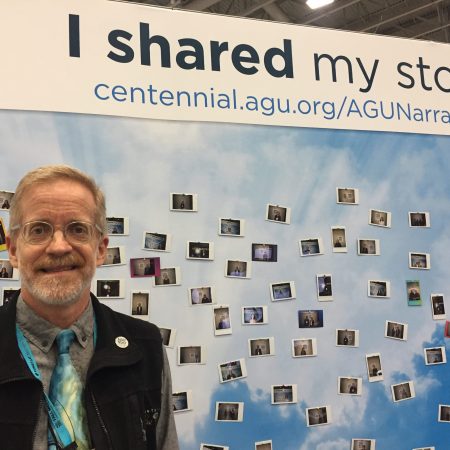
![“I'm proud my…perseverance of curiosity has gotten me to be [with] people who talk about life in the universe.” Interview w/ Julia DeMarines](https://archive.storycorps.org/uploads/2023/12/65835f3c1a41a__DeMarines_headshot-450x450.jpg)
